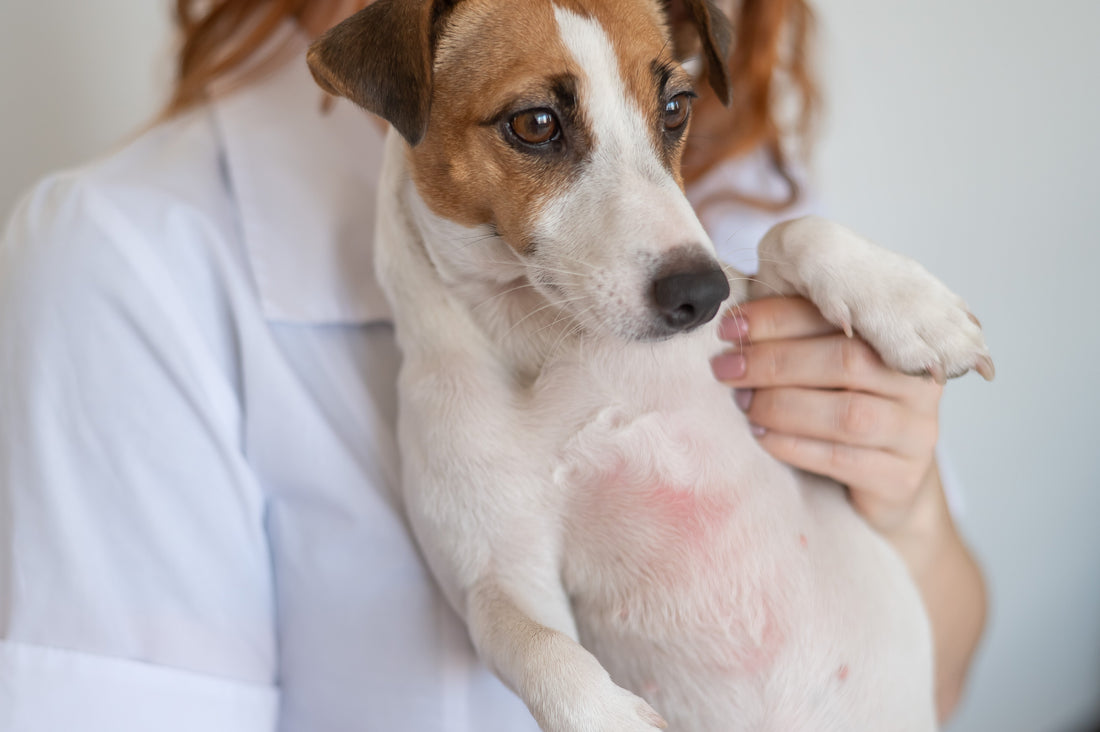Your furry friend's skin health is essential to their overall wellbeing. Skin problems in pets can lead to significant discomfort and even serious health issues if left untreated. Recognising the signs early can help you manage and prevent these problems effectively.
Common Signs of Skin Problems in Pets
Understanding the common signs of skin problems is the first step in keeping your pet healthy and comfortable. Look out for these symptoms:
Itching and Scratching
One of the most common signs of skin problems in pets is intense itching and scratching. This behaviour can indicate various issues, including allergies, parasites, or infections.
Redness and Inflammation
Affected areas may become swollen and warm to the touch. This inflammation can result from allergic reactions, infections, or irritants contacting the skin.
Rashes and Bumps
These may appear as clusters of red spots, blisters, or raised areas. Rashes can be caused by allergic reactions, insect bites, or contact with irritating substances.
Hair Loss
This is a significant sign of skin problems in pets. Continuous scratching and biting can lead to patches of missing fur, particularly around the tail, back, and legs. Hair loss can result from allergies, parasites, or fungal infections.
Skin Lesions and Scabs
Open sores, lesions, and scabs are more severe signs of skin problems. These develop from persistent scratching and can lead to secondary infections if not treated promptly.
Itchy Skin? Let's Investigate!
Many factors can contribute to itchy skin in pets. Understanding these common causes can help you and your veterinarian develop an effective treatment plan. Here's a breakdown of some frequent culprits:
- Flea Allergy Dermatitis: This is a common issue for pets with allergies to flea saliva. Even a single bite can cause significant itching and inflammation.
- Food Allergies: Certain food proteins, like beef, chicken, or dairy, can trigger allergic reactions in pets. Symptoms can include itching, rashes, and digestive problems. Identifying and eliminating the culprit from your pet's diet can significantly improve their comfort.
- Contact Dermatitis: This occurs when your pet's skin comes into direct contact with an irritant. Common culprits include flea collars, harsh shampoos, certain plants, or materials used in bedding or carpets. Signs include redness, itching, and localised rashes.
- Infections: Bacterial, fungal, and yeast infections can all cause itchy skin in pets. These infections may develop due to excessive scratching or underlying health conditions. Symptoms often include redness, inflammation, and lesions.
By being aware of these potential causes, you can play a proactive role in managing your pet's skin health. If you notice any signs of discomfort, consult your veterinarian for a proper diagnosis and treatment plan.
Treating Skin Problems in Pets
Once the cause of the skin problem is identified, treatment can begin. Common treatments include:
Topical Treatments
Topical creams and ointments can soothe and heal the skin, providing immediate relief from itching and inflammation.
Anti-Inflammatory Medications
Anti-inflammatory medications such as corticosteroids and antihistamines can reduce inflammation and itching. These are typically prescribed by a vet for more severe cases.
Medicated Shampoos
Regular bathing with medicated shampoos can help manage skin problems. These shampoos can remove allergens and soothe irritated skin. Always use hypoallergenic shampoos to avoid further irritation.
Antibiotics and Antifungals
Your vet may prescribe antibiotics or antifungal medications if secondary bacterial or fungal infections occur. These treatments are essential for clearing up infections and preventing further complications.
Dietary Changes
For pets with food allergies, adjusting their diet is crucial. Elimination diets can help identify the specific allergen, and switching to hypoallergenic or limited-ingredient diets can prevent future reactions.
Preventing Skin Problems in Pets
Preventing skin problems is always better than treating them. Here are some tips to keep your pet's skin healthy:
Regular Grooming
Brushing removes loose fur and prevents matting, keeping your pet’s skin and coat healthy. Regular baths with hypoallergenic shampoos keep the skin clean and free from allergens.
Flea and Tick Control
Effective flea and tick control is crucial for preventing skin problems. Use vet-recommended flea preventives and check your pet regularly for signs of parasites.
Balanced Diet
Feeding your pet a balanced diet that meets their nutritional needs can improve their skin health. Consult your vet for dietary recommendations tailored to your pet's specific needs.
Environmental Management
Keep your home clean to minimise your pet's exposure to environmental allergens. Also, regularly wash your pet's bedding and vacuum carpets to reduce dust mites and other allergens.
Regular Vet Check-Ups
This is essential for early detection and management of skin problems. Your vet can provide personalised advice and treatments to keep your pet's skin healthy.
Ensuring Your Pet’s Comfort
Recognising and addressing signs of skin problems in pets is vital for their comfort and health. With proper care, you can prevent and manage these issues, ensuring your furry friend remains happy and healthy. At Healthy Pet Co., we are dedicated to providing high-quality products that are vet-approved to support your pet's wellbeing. For more tips, visit our website and explore our range of pet care products today




